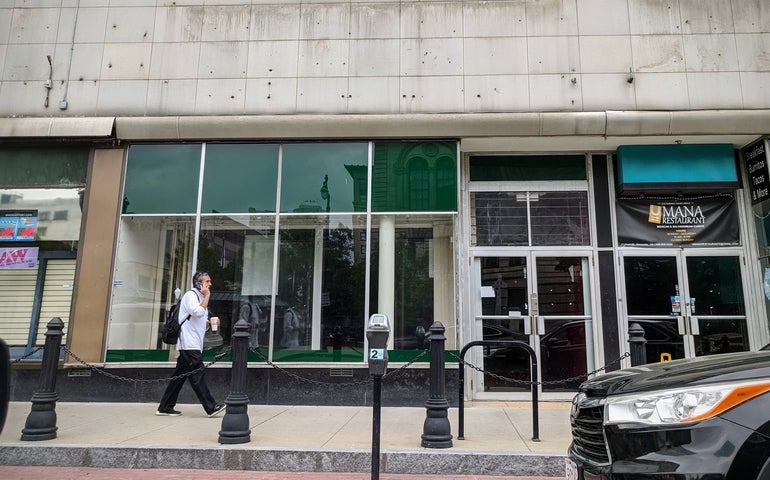Reversing direction after two months of gains, confidence among Massachusetts employers declined in July, with optimism about the state economy overshadowed by a more significant degree of pessimism over the national economy due to the damage that COVID-19 is inflicting on jobs, business and commerce.
Associated Industries of Massachusetts reported Tuesday that its overall business confidence index fell 3.2 points to 45.8, which is 16.2 points lower than this time last year. Index readings below 50 reflect a predominantly pessimistic outlook. The Massachusetts index rose 2 points in July while the national index fell 6.5 points.
“Businesses continue to face uncertainty around both the public-health crisis with COVID-19 and the economic crisis brought about by shutdowns and stay-at-home orders,” Raymond Torto, professor at the Harvard Graduate School of Design and chair of AIM’s Board of Economic Advisors, said. “The uncertainty will only intensify as cities and towns debate what to do about opening schools in September.”
BEA member Katherine Kiel, an economics professor at the College of the Holy Cross, said the Massachusetts economy declined at a 43.8 percent annual rate in the second quarter, and employers continue to feel the effects.
“The pandemic affected Massachusetts and other northeastern states early and severely during the second quarter so it’s not surprising that Massachusetts now has the highest unemployment rate in the nation at 17.4 percent. September will mark a critical juncture in the recovery as we see how many students return to college campuses and how schools handle the start of classes,” Kiel said.
AIM President and CEO John Regan said the business group is monitoring federal financial support to the unemployment insurance system, which could help to moderate unemployment tax increases for employers, who are facing a $6.6 billion deficit in the Unemployment Insurance Trust Fund in the coming years.

